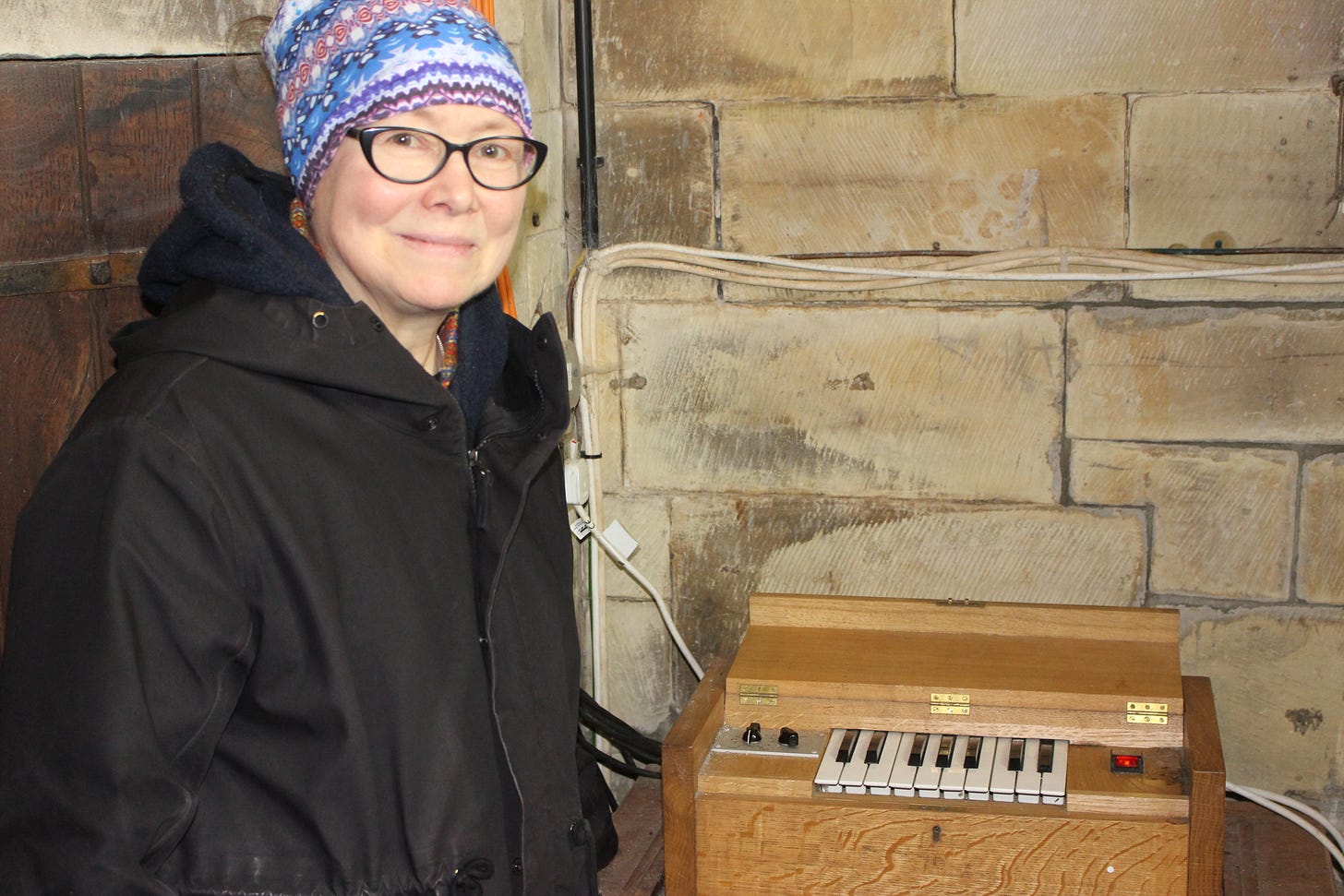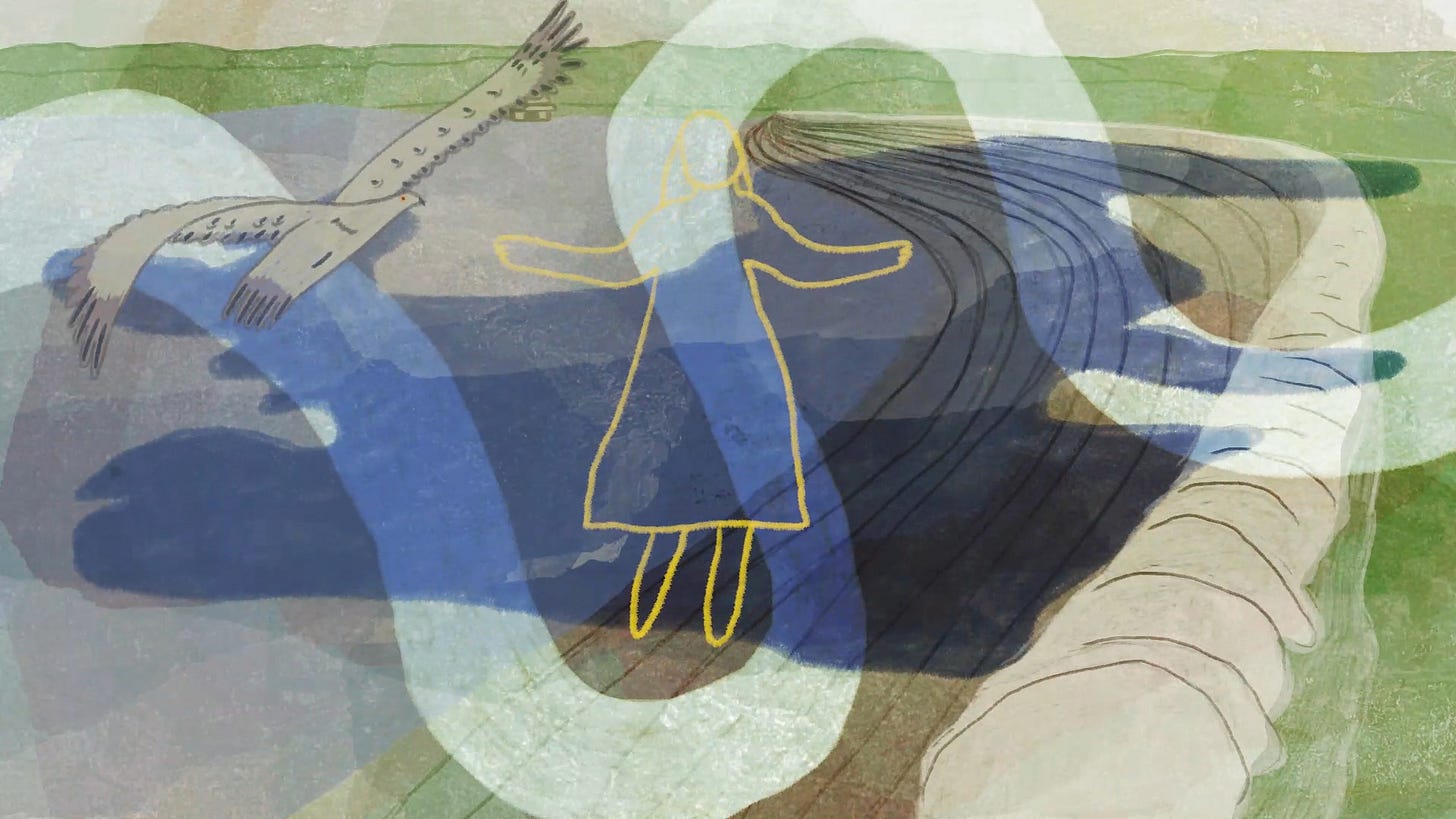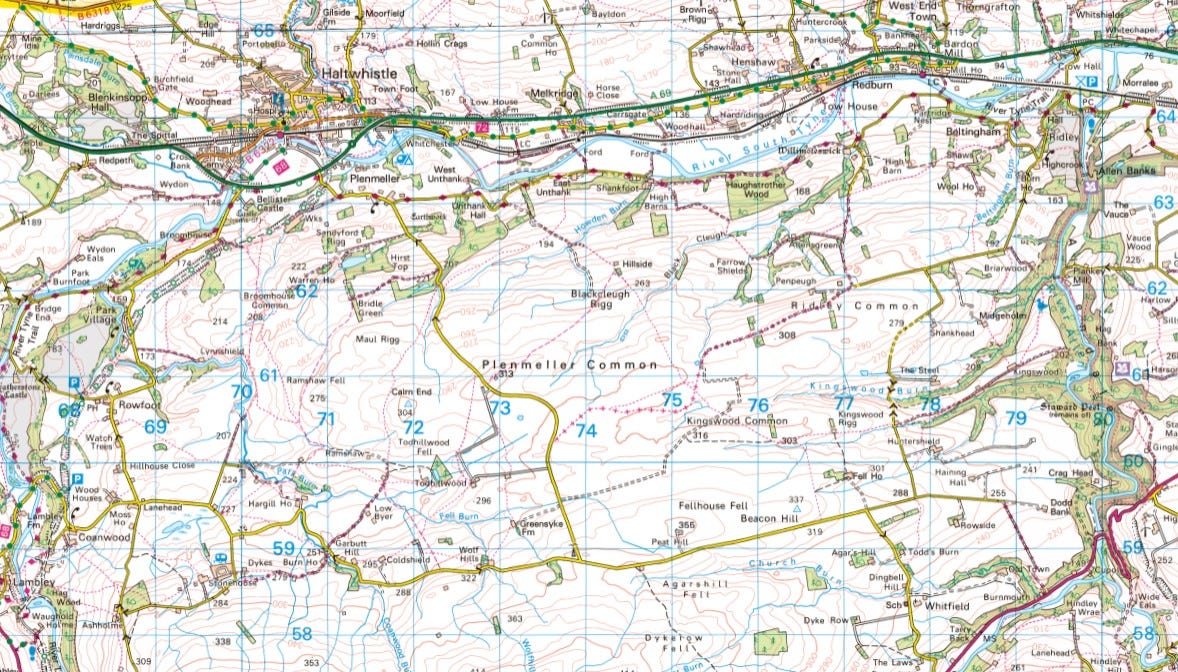Podcast news
Hexham’s Marketplace Coffee serves a fine espresso and quality flapjack, so it was here I met up with podcast mentor and perhaps the best-connected musician in Tynedale, Mike Coleman, to catch up as we near the podcast’s first birthday. Suitably energised, we spent a happy 30 minutes creating a long list of potential guests that should keep me going well into the second year. No sign-ups yet so I have to be coy (I’m assuming those who decline probably won’t want me to identify them) but it will be fun if I only persuade half of them to talk to me.
The episode on the carillon is approaching epic proportions - at least regarding time invested. Josephine Dickinson, the carollinist at St Augustine’s Church in Alston, and I visited Newcastle Civic Centre to spend a very happy couple of hours in the company of Jon Bradley, the city’s official carollinist.
Jon was a generous host and a font of knowledge about the Edith Adamson carillon, a unique and impressive instrument donated in 1967. If you’re ever in the centre of Newcastle on a Friday afternoon between 2 pm to 3 pm, listen out for one of his regular performances.
Next, Sarah Blackett-Ord, Warden of Holy Trinity Church in Whitfield, warmly welcomed us to play the carillon at what is surely one of the prettiest churches in the land.
Nestled in a hollow next to the river West Allen, it is a Grade II* listed building built in 1860. Its 8-bell carillon, donated in 1977 in memory of Elizabeth Blackett-Ord, is a complete contrast to what Josephine has played before. She is accustomed to playing a clavier of levers that pull wires, causing a hammer to strike the bell (as in the Newcastle carillon pictured above) - something that requires considerable physical effort. By contrast, the Whitfield carillon is played using a small keyboard connected electronically to the hammers - a fingertip operation.
This, of course, was no obstacle to Josephine, who declared after only 30 minutes that she was getting the hang of it. We are hoping to speak to one of the Whitfield carollinists in more detail in the next couple of weeks.
Very soon after, Paul Frear and Jess McCormack visited the state-of-the-art studio at 3tynespodcast HQ to record a preview of Alston Live festival.
The festival will be held on the 18th and 19th of July in a big marquee on Tyne Willows (near the river), with a line-up encompassing folk, pop, punk, balladry and flamenco. The food vendors will include one of my favourite restaurants in Hexham, Little Mexico.
Three Tynes
The big event of March for Three Tynes was the live performance of the song This Place as part of the Tyne Valley Film Festival. A lot of preparation went into these four minutes!
First off, thanks are due to Katie Doherty, Jenny Ranson and Dan Coggins for a lovely performance. You could not meet three more generous people and they were rewarded with warm applause from the audience.
My thanks are also due to Clare Mwande, Director of the Forum Cinema, for giving us the opportunity to play the song live for a film-going audience. Clare is one of Three Tynes’ staunchest supporters and I’m looking forward to working with her very much.
The video is now officially available on YouTube and the song is on streaming platforms big and small - add it to one of your playlists! You can stream and download the song from Bandcamp - pay as much or as little as you like.
I spent many a happy hour emailing press kits to help media outlets write a story about the launch. One Facebook platform decided that would be too much effort and published the information unedited and in full. I can’t imagine what their followers must have thought. But we did get a lovely write-up in our local paper, the Hexham Courant, and a feature on the song itself in the North East culture magazine NARC. Another feature was promised in Simply Folk Magazine but the editor forgot! We are promised it for May’s issue.
What next? Nothing dramatic from a listener’s perspective, I’m afraid, but the search for funding to complete the project and debut it at Hexham’s Forum Cinema now begins in earnest. We are offering young musicians an opportunity to join us in the performance so they can get some experience of playing live with a professional band. If you know of a school or organisation that would be interested in supporting its students to get involved, or young developing musicians themselves, please message me on Substack or Facebook/Instagram.
Luckiest Man
This is the fourth song in the epic saga of Three Tynes and the last one about the South Tyne. The song describes the part of the river from Lambley viaduct to Watersmeet, just outside Hexham.
Just looking at the map, it’s clear that the South Tyne is now a very different beast from the swagger and bravado of its higher reaches. The river meanders along the valley, through the grounds of Featherstone Castle, now a conference centre, past the villages of Henstridge, Melkridge and Bardon Mill, carving leisurely picturesque curves at the Unthanks and Lees Heugh. It rubs along with humans more matter-of-factly at Haltwhistle and Haydon Bridge. It’s never far from the A69 - the main reason so many people are able to live in this part of Tynedale and commute east and west.
But it seems to accommodate it all without fuss. It is an untroubled river: it doesn’t hurry, unless pushed to do so by an epic storm on the moors, and even then it remains unflustered, smoothly carrying its extra burden eastwards. This is a river that, for all its modest size and youth, has grown up and got life sussed.
I recommend you pay a visit to the magnificent Lambley viaduct, where the path of the former Alston to Haltwhistle railway crosses the river. It is as if this is a gateway through which the youthful South Tyne passes into maturity.
And that’s way too soon for its own good! Luckiest Man tells of the price to be paid by achieving one’s aspirations so quickly, like an ambitious young graduate who has reached a management post early in their career and promptly settled down with a house and a family. But then what do you do if, like our hero the Upper South Tyne, you’re a youthful get-go lad, a stranger to modesty with a spring in your step? You become disillusioned and descend into drink, that’s what. The South Tyne, that near-perfect river, is too much, too soon.
I tried to write this song in Phrygian, a mode of the major scale that, while tuneful, feels tense and unsettled; it can sound vaguely Middle Eastern. It’s more common in classical music than pop or rock. You can hear it for yourself on YouTube.
I doubt that I got the harmonic structure correct but I think the unease is evident in the music and the lyrics. The verses switch from the protagonist’s drunken acknowledgment of failure and the family’s incomprehension at his desire to walk away from their perfect life. The strong, upbeat rhythm and the strident riff emphasise the underlying determination to leave.
We’re still in Demoland with this one but it’s good enough to hum along to if you’re so inclined.
Tell me how we got this far
I let you down at every step
I’m running from your bed to the bar
You forgive and I’ll forget
Sit me up and lift my head
Put the bottle in my hand
I’m crawling from the bar to your bed
We can talk when I can stand
Look at what you have in front of you
Look at what you’re holding in your hands
Look who’s always standing by you
Who do people call the luckiest man
What is there that’s not in front of you?
What is it you don’t have in your hands?
Who else could you want beside you?
Can’t you see you are the luckiest man?
If I’m gonna do this I’ll be
In it up to my neck but I
Just dip my toe in while I am
Making out I’m getting wet
Been trying us on for size and
I thought we would fit but we just
Look good in the part and I want
Something deeper out of it
Isn’t this what you were looking for?
Is there somewhere better you can go?
Is there somewhere you’ll be happier?
All you need is here you just don’t know
Funny thing with dreams is
You feel different when you wake up
I thought this was all I needed
But it’s not enough to make up for it












